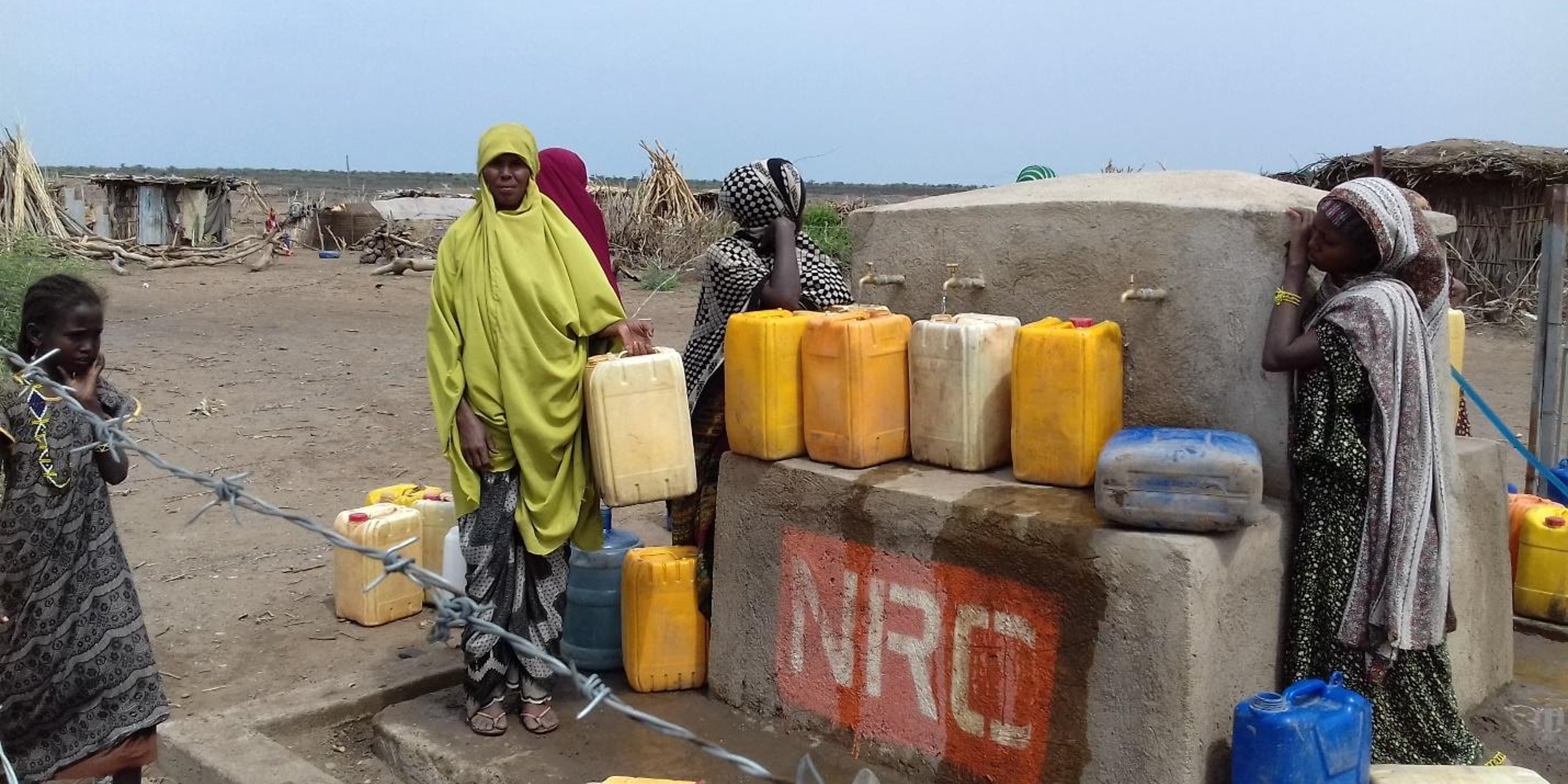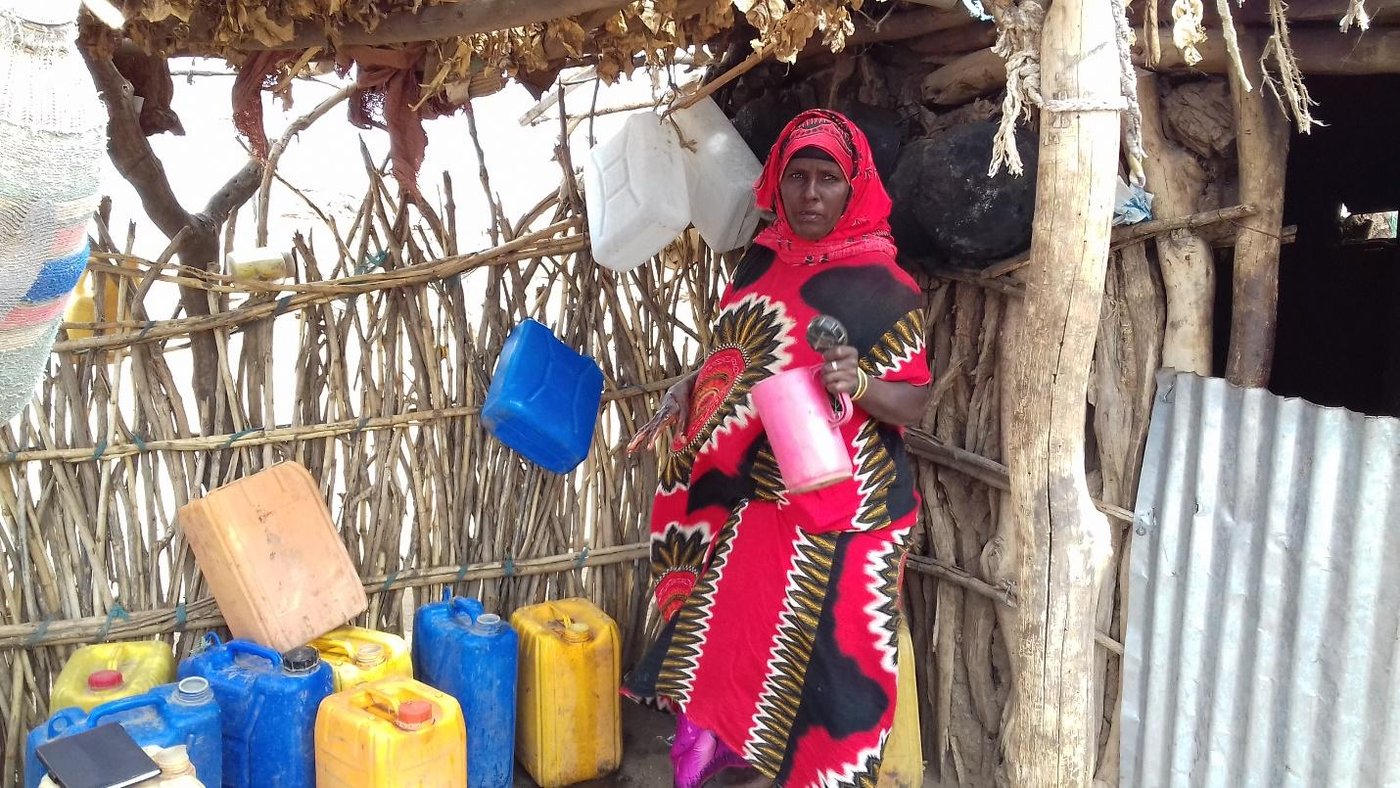
As the sun rises over Ethiopia’s dry Bike district, the village of Dhankarore is already busy. By the time the water station opens at half past six, a long line of women and children have queued up, juggling a multitude of water jars and cans to purchase their share of clean water. The Norwegian Refugee Council (NRC) has built two water points in the village, which sell clean water at 0.50 Ethiopian Birr – around two cents in USD – for 20 litres.
Drinking muddy water
Forty-eight-year-old Malayka Ali is one of the women who stands in the queue every morning. She does this gladly. Because before NRC constructed this borehole in her village, Malayka had to walk up to two kilometres to reach a shallow well. She did this twice a day. With the new filling station, she’s saving a lot of time and effort. It makes her life easier.
Malayka also notes a big difference in the water drawn from the borehole compared to the unprotected water source she used before.
“It had mud in it,” she explains. “When I drank it with my family we didn’t drink it wholeheartedly. Even the food prepared with it tasted bad.”
Her fellow villagers, their livestock and wild animals were all drinking from this source. But they didn’t have a choice. The thirst was overwhelming.
[The water] had mud in it. When I drank it with my family we didn’t drink it wholeheartedly. Even the food prepared with it tasted bad.
Building water infrastructure
Dhankarone is small village in central Ethiopia, home to around 750 local and displaced families, and surrounded by a large pastoralist community. The infrastructure is weak in this rural region, and the climate is hot and arid. Clean water and sanitation facilities are scarce.
As part of our water, hygiene and sanitation programme, in 2016 NRC drilled a deep borehole in the village and built an accompanying reservoir and two water points. To curb the spread of disease, in early 2017 our teams constructed communal latrines and extended the water supply to Dhankarone’s school. We also taught proper sanitation and hygiene practices, so villagers could take better care of their families and these new systems. The programme is funded by the Norwegian Ministry of Foreign Affairs and SIDA.

Planning ahead
Malayka says her family purchases 80 litres of water a day on average, which they use for cooking, bathing and drinking. She feels that the water from the borehole is clean and healthy, and keeps an extra supply stored next to her house. Now she can see to it that her children stay hydrated, and that their meals taste as they should.
Tomorrow morning, she will take her jerricans and queue up again to replenish her supply.

